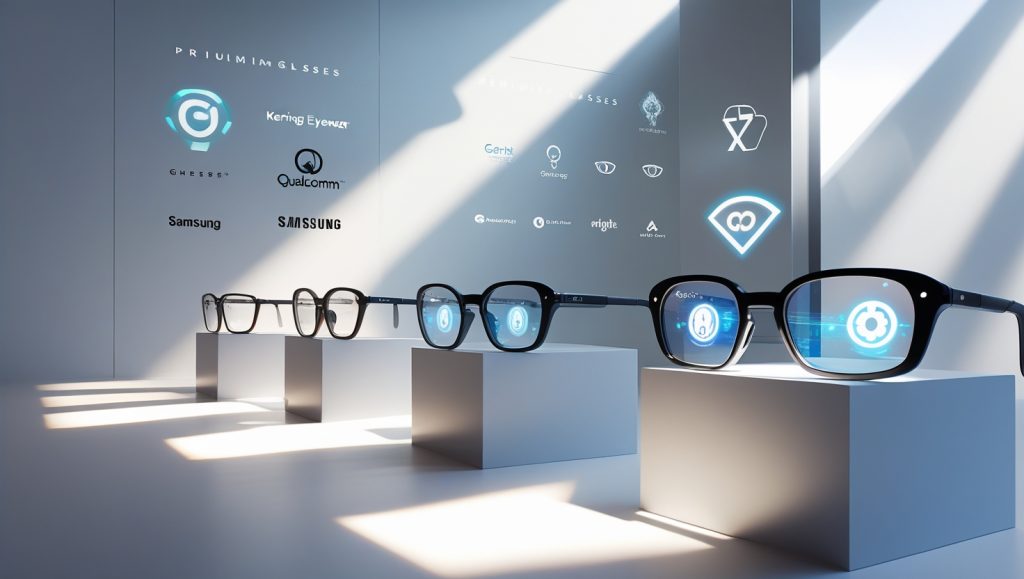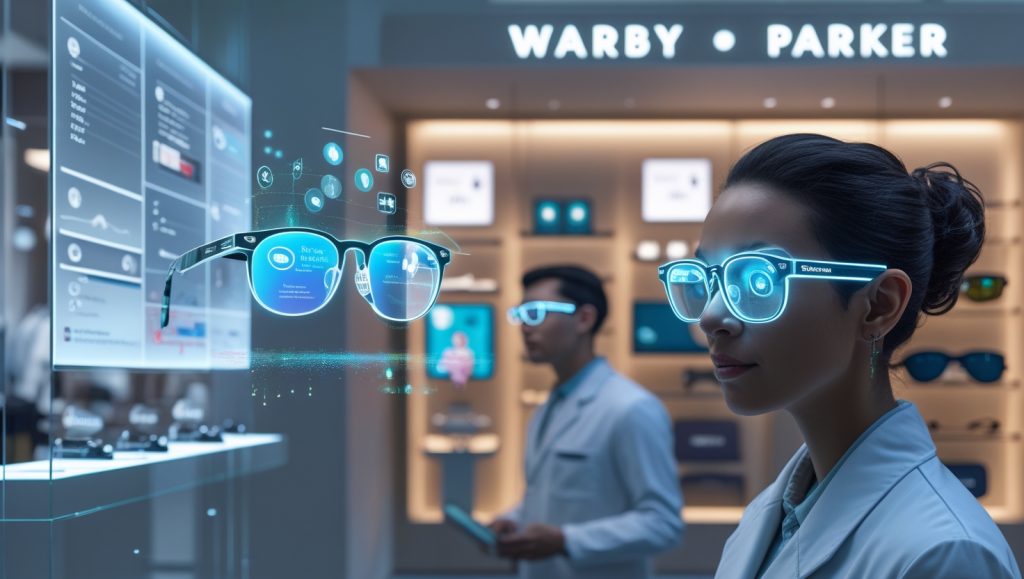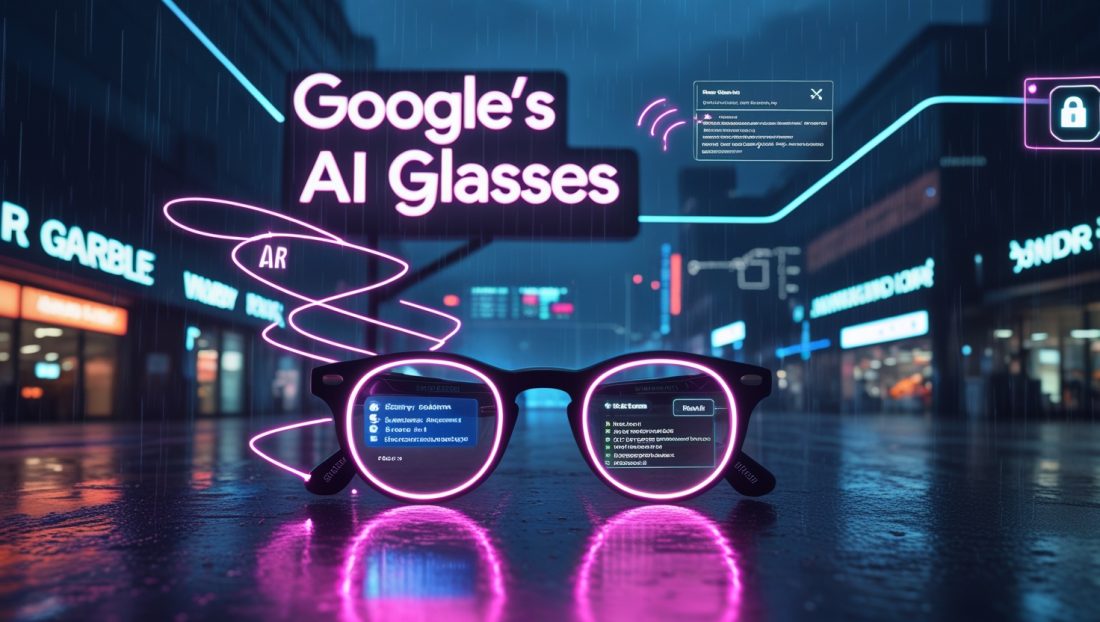Can Glasses Any Get Smarter?
Imagine glasses that translate foreign signs instantly or guide you through a busy airport hands-free. At Google I/O 2025, Google unveiled a $150 million partnership with Warby Parker to create AI glasses powered by Gemini AI and Android XR. This bold move aims to blend style with cutting-edge tech, but can it overcome the ghosts of Google Glass? With a projected launch after 2025, this collaboration has investors buzzing—Warby Parker’s stock soared 16%—yet skeptics question its viability. Let’s dive into why this partnership could shape the future of wearables or falter under familiar challenges.
Why Google Is Betting Big on AI Glasses

Google’s history with smart glasses is rocky. Its 2013 Google Glass intrigued early adopters but faltered due to privacy concerns and clunky design. Now, Google’s investing heavily, committing $150 million to Warby Parker to develop AI glasses powered by Gemini AI and Android XR, with $75 million for product development and $75 million in potential equity tied to milestones TechCrunch. Shahram Izadi, Google’s VP of XR, stated, “Warby Parker’s optical expertise and omnichannel approach make them the perfect partner to co-create this next generation of smart glasses.”
Unlike Google Glass, these AI glasses prioritize style and function, leveraging Warby Parker’s sleek frames and Android XR’s app ecosystem, built with partners like Samsung and Qualcomm. Google’s also collaborating with brands like Gentle Monster and Kering Eyewear to diversify its offerings, aiming to challenge Meta’s Ray-Ban smart glasses, which have sold 2 million units since 2023 Business News Today. With the wearable tech market projected to reach $2-4 billion by 2030, Google’s multi-brand strategy could carve out a significant edge.
A Fictional Anecdote
Picture this (pure fiction): Jake, a freelance journalist, is rushing through Tokyo’s Shibuya Crossing. His AI glasses flash directions to his next interview, translate a nearby menu, and ping a calendar reminder—all without him touching his phone. By day’s end, Jake’s hooked, but he wonders: are these glasses tracking his every move? This scenario captures the potential and pitfalls Google and Warby Parker must navigate.
Why Warby Parker’s Role Is Crucial
Warby Parker, founded in 2010, disrupted eyewear with stylish, budget-friendly glasses and tech-driven tools like virtual try-ons. Their social mission—distributing over 15 million glasses to those in need—adds a human touch. Dave Gilboa, Warby Parker’s co-CEO, said, “Multimodal AI is perfectly suited for glasses, enabling real-time context and intelligence to augment a wearer’s surroundings.”
This partnership leverages Warby Parker’s retail network and design savvy to make AI glasses wearable all day. Unlike Meta’s Ray-Ban partnership, which leans on luxury, Warby Parker’s affordability could democratize smart glasses. Their collaboration with Google also taps into trends like AI-driven automation in retail, where seamless tech integration is key.
The Tech Behind AI Glasses
These AI glasses will use Gemini AI for features like live translation, navigation, and scheduling, with optional in-lens displays for discreet data viewing. Built on Android XR, they’ll support a growing app ecosystem, similar to how neural interface-controlled exoskeletons enhance human capabilities. Prototypes are in testing, but specifics on battery life or pricing remain unclear.
Why This Could Reshape Wearable Tech

The wearable tech market is heating up, with smart glasses projected to hit $2-4 billion by 2030. Google’s AI glasses could shine in areas like:
- Productivity: Hands-free scheduling and note-taking for busy professionals.
- Accessibility: Real-time translation for travelers or navigation for the visually impaired, echoing advances in robotic surgery.
- Education: AR overlays for training, like medical students practicing procedures.
Warby Parker’s retail stores and online platform give Google a distribution edge. Citi analysts raised Warby Parker’s price target to $22, reflecting optimism, but Alphabet’s stock dipped 1.4%, signaling market doubts.
The Competition
Meta’s Ray-Ban smart glasses, backed by EssilorLuxottica, dominate with sleek designs and features like audio streaming. Mark Zuckerberg noted their sales tripled in 2024, though exact figures are vague. Google’s multi-brand strategy, including partnerships with Gentle Monster and Kering Eyewear, aims to diversify its offerings, but Meta’s head start is formidable.
Why Privacy and Cost Could Derail It

Google Glass tanked partly due to privacy fears—its always-on camera felt invasive. AI glasses with multimodal AI could amplify those concerns. Posts on X show mixed sentiment: one user wrote, “Cool tech, but I don’t trust Google with my data.” Google must prioritize opt-in features and clear data policies to avoid backlash.
Cost is another hurdle. Warby Parker’s affordable frames are a plus, but embedding AI and AR tech could push prices above standard glasses. If AI glasses cost as much as Meta’s $300 Ray-Ban models, adoption may stall. This mirrors challenges in robotics-driven recycling, where cost barriers slow progress.
FAQ: Your Questions About AI Glasses Answered
What do AI glasses do?
AI glasses use Gemini AI to provide real-time features like translation, navigation, and scheduling, integrated into stylish Warby Parker frames.
When will Google and Warby Parker’s AI glasses launch?
The first line is slated for release after 2025, with prototypes currently in testing.
How much will AI glasses cost?
Pricing isn’t confirmed, but Warby Parker’s affordable model suggests competitive pricing, likely above standard glasses due to AI tech.
Are AI glasses safe for privacy?
Privacy remains a concern. Google needs transparent data policies to ensure AI glasses don’t collect data without consent.
A Vision Worth Watching
Google’s $150 million partnership with Warby Parker to develop AI glasses is a bold play to redefine wearables. By merging Warby Parker’s style with Gemini AI and Android XR, they’re crafting a device that could enhance daily life—if they navigate privacy and cost hurdles. While Meta’s Ray-Ban glasses lead, Google’s ecosystem and Warby Parker’s accessibility could shift the tide. Stay updated on this and more at CreedTec. What do you think—will AI glasses change how we see the world?

